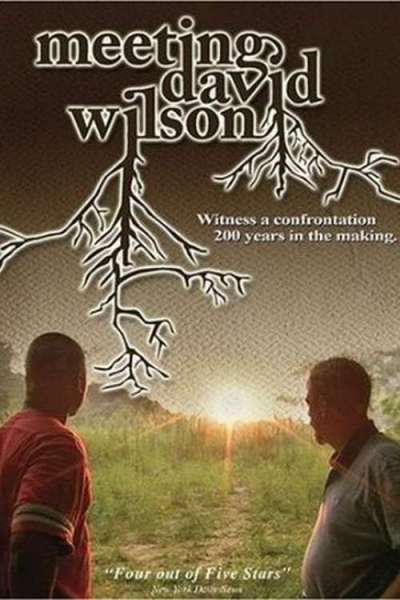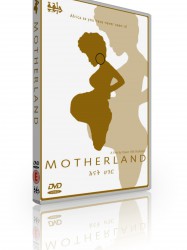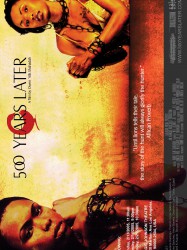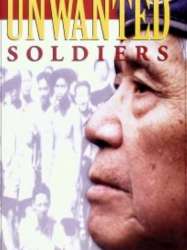Meeting David Wilson est un film de genre Documentaire
Meeting David Wilson (2008)

Si vous aimez ce film, faites-le savoir !
Genres Documentaire
Themes Esclavagisme, Le racisme, Documentaire sur la discrimination, Documentaire sur le droit, Documentaire historique, Documentaire sur une personnalité
Note75%










Meeting David Wilson is a 2008 American documentary film. It is a 90-minute video produced for initial presentation on the MSNBC cable channel. Its focus is the encounter between David A. Wilson, a black American filmmaker who grew up in Newark, New Jersey, and David B. Wilson, a descendant of a white American tobacco-plantation owner who had owned some of the black Wilsons’ ancestors as slaves. The film was directed by Daniel Woolsey and David A. Wilson and produced by Barion Grant.
The Wilsons and Barion founded an African-American News website at NBC News entitled The Grio.
Commentaires
Postez un commentaire :
Suggestions de films similaires à Meeting David Wilson
Il y a 8965 ayant les mêmes genres cinématographiques, 4264 films qui ont les mêmes thèmes (dont 7 films qui ont les mêmes 6 thèmes que Meeting David Wilson), pour avoir au final 70 suggestions de films similaires.Si vous avez aimé Meeting David Wilson, vous aimerez sûrement les films similaires suivants :

Loyalties (1999)
Genres Documentaire
Thèmes Esclavagisme, Le racisme, Documentaire sur la discrimination, Documentaire sur le droit, Documentaire historique, Documentaire sur une personnalité
 , 1h26
, 1h26Origine Etats-Unis
Genres Documentaire, Historique
Thèmes Esclavagisme, Le racisme, Documentaire sur la discrimination, Documentaire sur le droit, Documentaire historique, Documentaire sur une personnalité
Note68%





The film focuses on the descendants of the DeWolf family, a prominent slave trading family from Rhode Island from 1769 to 1820, and the legacy of the slave trade in the North of the United States. The film follows ten family members as they retrace the triangle trade starting at Linden Place in Bristol, Rhode Island, the hometown of the DeWolfs. The family has been prominent in local businesses and banking, as academics, in the local Episcopal and other institutions, and organizing the Bristol Fourth of July Parade. The film goes with the family to Ghana, where the slaves were purchased and where they meet with current residents, and to Cuba, where James DeWolf owned three sugar and coffee plantations in the 19th century.

Motherland (2010)
, 1h58Réalisé par Owen 'Alik Shahadah
Origine Etats-Unis
Genres Documentaire
Thèmes Afrique post-coloniale, Esclavagisme, Le racisme, Documentaire sur la discrimination, Documentaire sur le droit, Documentaire historique, Documentaire sur une personnalité, Documentaire sur la politique, Politique
Acteurs Harry Belafonte, Abdulkadir Ahmed Said
Note82%





Motherland is an epic documentary about the African continent from Ancient Egypt to the present. It is an overview of African history and contemporary issues but with the African people at the centre of the story. It is one of the first Pan-African features to be made.

500 Years Later (2005)
, 1h48Réalisé par Owen 'Alik Shahadah
Genres Documentaire
Thèmes Afrique post-coloniale, Esclavagisme, Le racisme, Documentaire sur la discrimination, Documentaire sur le droit, Documentaire historique, Documentaire sur une personnalité, Documentaire sur la politique, Politique
Acteurs Bill Cosby, M. K. Asante, Nelson George
Note68%





The film visits five continents, and over twenty countries while charting the legacy of slavery and identifies a direct, or indirect link to crime, drugs, HIV/AIDS, poor education, inferiority complex, low expectations, poverty, corruption, poor health, and underdevelopment to African people globally.
 , 2h20
, 2h20Origine Etats-Unis
Genres Documentaire
Thèmes Film sur un écrivain, Esclavagisme, Le racisme, Documentaire sur la discrimination, Documentaire sur le droit, Documentaire historique, Documentaire sur une personnalité
Acteurs Diahann Carroll
 , 52minutes
, 52minutesGenres Documentaire
Thèmes Esclavagisme, Le racisme, Documentaire sur la discrimination, Documentaire sur le droit, Documentaire sur la guerre, Documentaire historique, Documentaire sur une personnalité, Politique, Film catastrophe
Frederick Douglass and the White Negro is a documentary telling the story of ex-slave, abolitionist, writer and politician Frederick Douglass and his escape to Ireland from America in the 1840s. The film follows Douglass' life from slavery as a young man through to his time in Ireland where he befriended Daniel O'Connell, toured the country spreading the message of abolition and was treated as a human being for the first time by white people. His arrival in Ireland coincided with the Great Famine and he witnessed white people in what he considered to be a worse state than his fellow African Americans back in the US. The film follows Douglass back to America where he buys his freedom with funds raised in Ireland and Britain. Fellow passengers on his return journey include the Irish escaping the famine who arrive in their millions and would go on to play a major role in the New York Draft Riot of 1863 which Douglass could only despair over. The film examines (with contributions from the author of How The Irish Became White Noel Ignatiev amongst others) the turbulent relationship between African Americans and Irish Americans during the American Civil War, what drew them together and what drove them apart and how this would shape the America of the twentieth century and beyond.

Les Négriers (1971)
, 2h20Réalisé par Francesco Prosperi, Gualtiero Jacopetti, Franco E. Prosperi
Origine Italie
Genres Drame, Documentaire, Horreur, Historique, Policier
Thèmes Esclavagisme, Le racisme, Documentaire sur la discrimination, Documentaire sur le droit, Documentaire historique, Documentaire sur une personnalité
Acteurs Gualtiero Jacopetti, Susan Hampshire, Franco E. Prosperi, Geoffrey Copleston
Note65%





Le film a été tourné quelques années après Africa addio, à l'origine de polémiques idéologiques, dues à la description des difficultés en tous genres du continent africain après la fin du colonialisme européen.

Flower in the Gun Barrel (2008)
Origine Etats-Unis
Genres Documentaire
Thèmes Afrique post-coloniale, Le racisme, Documentaire sur la discrimination, Documentaire sur le droit, Documentaire sur la guerre, Documentaire historique, Documentaire sur une personnalité, Documentaire sur la politique, Politique
Note80%





To a large extent, the film consists of interviews with genocide survivors, many of whom were children in 1994. In all, over thirty survivors, perpetrators, and experts were interviewed for the film. In these interviews, the survivors discuss what it means to be a Rwandan and to live next door to people who killed their families. The survivors describe how they deal with their country's request that they forgive one another and move on, so that Rwanda can rebuild and unify itself. Perpetrators' views illuminate the madness that seized the culture in 1994; exploring the experience of apologizing to victims, and examining what it is like to be looked at as a murderer in Rwandan society.

Prisoner of Paradise (2002)
, 1h36Réalisé par Malcolm Clarke
Origine Etats-Unis
Genres Documentaire
Thèmes Film traitant du cinéma, Le racisme, Religion, Documentaire sur le monde des affaires, Documentaire sur le cinéma, Documentaire sur la discrimination, Documentaire sur le droit, Documentaire sur la guerre, Documentaire historique, Documentaire sur une personnalité, Documentaire sur la religion, Politique, Religion juive, Documentaire sur la Seconde Guerre mondiale, Documentaire sur les films
Acteurs Ian Holm, Renée Saint-Cyr, Hans Albers, Marlene Dietrich, Kurt Gerron, Peter Lorre
Note74%






Unwanted Soldiers (1999)
Origine Canada
Genres Documentaire
Thèmes Le racisme, Documentaire sur la discrimination, Documentaire sur le droit, Documentaire sur la guerre, Documentaire historique, Documentaire sur une personnalité, Documentaire sur la santé, Politique, Documentaire sur la Seconde Guerre mondiale
 Connexion
Connexion